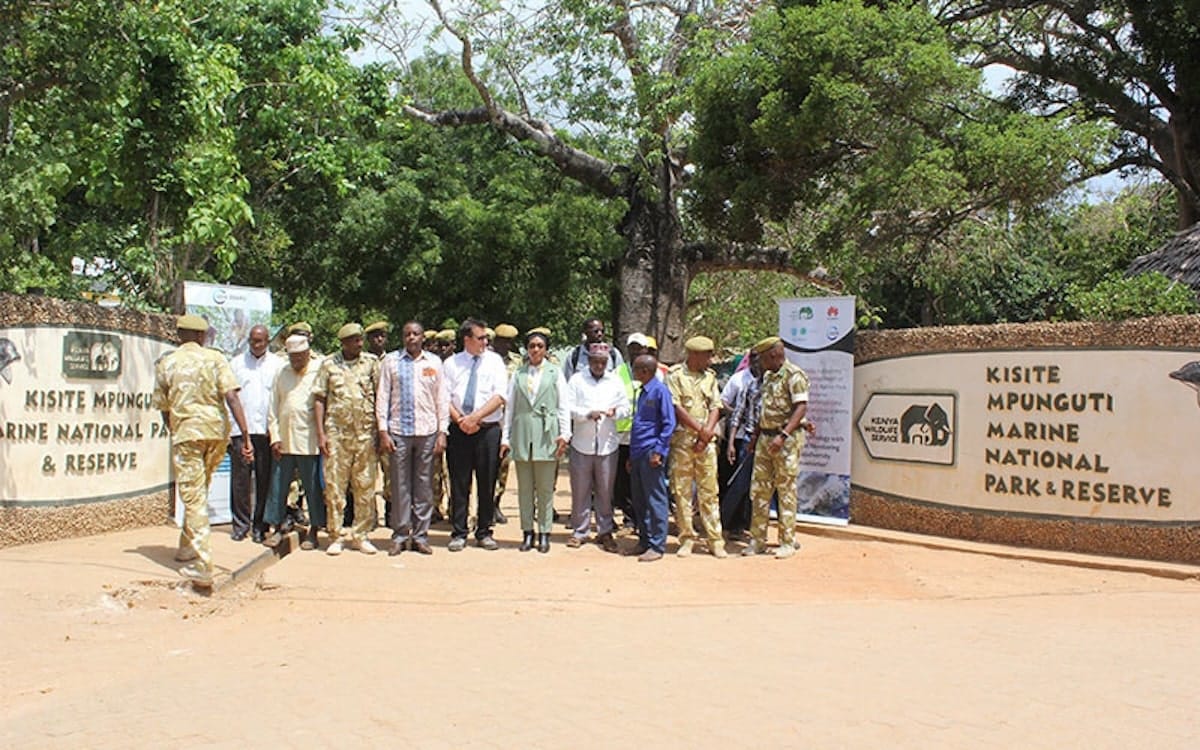Huawei, the International Union for Conservation of Nature (IUCN), and the Kenya Wildlife Service (KWS) have launched a joint project under the Tech4Nature program. The main goal is to protect coral reefs and biodiversity in the Kisite-Mpunguti Marine Park, located on the southern coast of Kenya. This project, aligned with Huawei’s TECH4ALL program and the IUCN Green List standards, aims to integrate advanced technology to tackle challenges in marine conservation.
Challenges in Marine Conservation
The Kisite-Mpunguti Marine Park faces multiple threats that complicate its management and preservation:
- Illegal fishing: This clandestine activity endangers the area’s biodiversity.
- Lack of remote monitoring: The infrastructure to monitor the islands and reefs is limited, making it difficult to protect the habitat from tourism pressure.
- Insufficient community awareness: There is a low level of knowledge about the importance of the reefs and their biodiversity.
- Limited communication infrastructure: This restricts the use of technology in conservation efforts.
Technology in Action: Innovative Tools for Conservation
The Tech4Nature project will implement a combination of advanced technologies to address these issues:
Underwater Monitoring
Underwater cameras, photogrammetry technologies, and acoustic monitoring devices will be installed. These tools will enable:
- Monitoring the biomass and populations of key species such as the parrotfish, which play an essential role in reef health by preventing overgrowth from algae.
- Assessing seagrass coverage, and the presence of green turtles and dolphins, both classified as threatened species by the IUCN Red List.
Artificial Intelligence and Data Analysis
- AI systems will be trained to identify specific species and analyze their behaviors, populations, and distribution.
- Vessels engaged in illegal fishing activities will also be mapped, generating real-time alerts for rangers to intervene.
Enhanced Connectivity
Huawei will install digital connectivity and energy solutions that will allow data to be sent efficiently to cloud servers. This will ensure that the AI processes information more quickly and accurately.
Impact on Conservation and Sustainability
In addition to technological innovations, the Tech4Nature project includes community initiatives to raise awareness about biodiversity. The data collected will help:
- Implement specific measures to protect vulnerable species and habitats.
- Achieve certification on the IUCN Green List, which recognizes protected areas with world-class conservation standards.
Innocent Kabenga, IUCN representative in Kenya, stated: “This technology represents a revolutionary advancement in marine conservation in Kenya. It not only facilitates monitoring and management but also enhances the sustainable appeal of tourism in the park.”
The Global Impact of Tech4Nature
The project in Kenya is part of a broader initiative. Huawei and IUCN launched Tech4Nature in 2020, and to date, they have supported 11 flagship projects in 8 countries, addressing local challenges with customized technological solutions.
Conclusion: A Model for Future Conservation
The alliance between Huawei, IUCN, and KWS not only protects a key ecosystem in Kenya but also establishes a replicable model for global conservation. The use of technologies like AI and advanced connectivity demonstrates how innovation can be integrated into the fight for sustainability, ensuring that natural resources are preserved for future generations.

